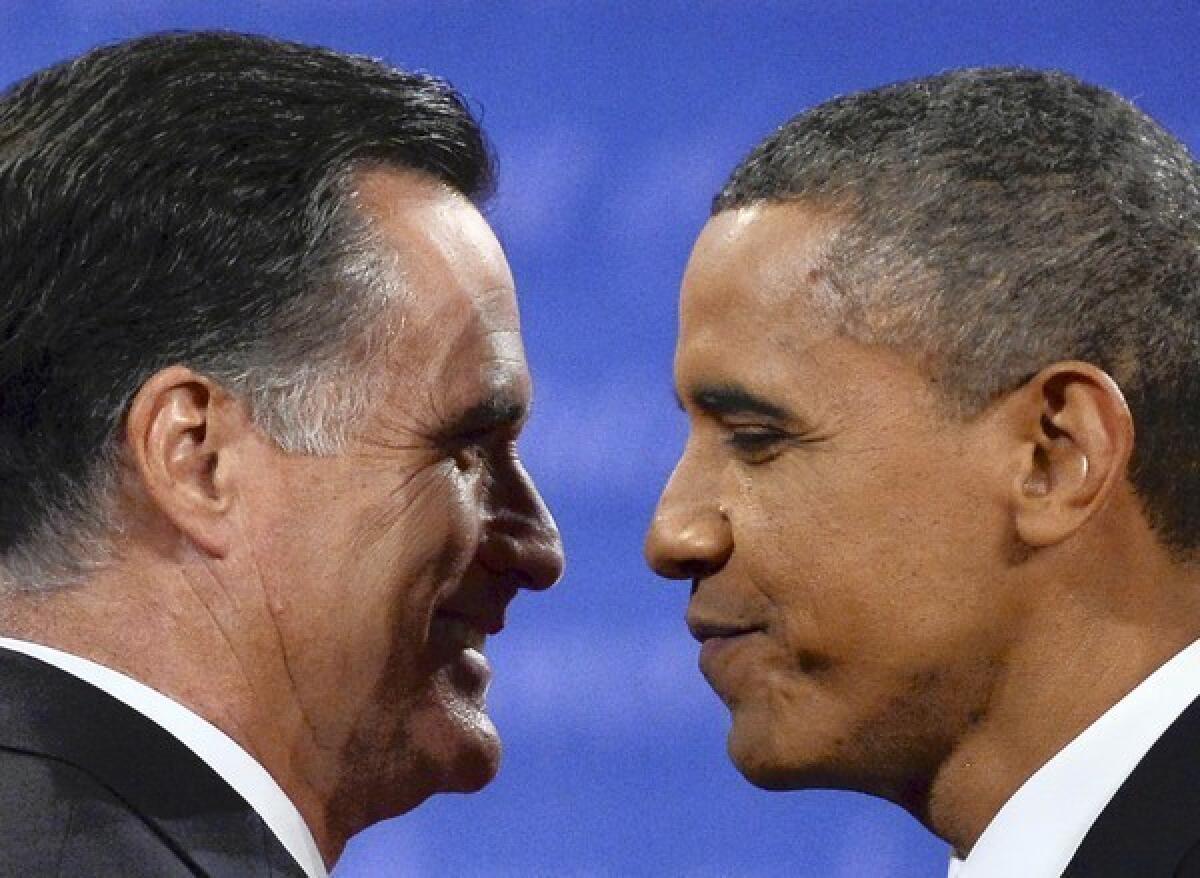Why do endorsements?

The Times editorial board’s endorsement of President Obama on Sunday drew dozens of letters to the editor and comments to the paper’s readers’ representative, most of them expressing either disagreement or approval of the recommendation.
Though most of the comments touched on the substance of the editorial — taking issue with or elaborating on some of the points — several readers questioned the very purpose of a newspaper making endorsements. For example, Elizabeth Denny of Orange wrote to The Times’ readers’ representative:
“I do not subscribe to The Times to read about your political preferences. I want the news to be nonpartisan, and I want to read about the facts, not a person’s or a corporation’s opinions. I am very disturbed by the article endorsing Obama, which states that he has led the country well and that Romney has not shown himself to be a capable leader. This rubbish is one person’s opinion. Please stop doing this and report the news as fact, not through a bias lens”
Editorial Pages Editor Nicholas Goldberg responds:
When the Los Angeles Times covers the news, it tries to do so in as objective and unbiased a manner as possible. Reporters are expected to present both sides of every argument but to withhold judgments about which side is right and which side is wrong. Readers are to be presented with the facts, but they should be left to draw their own conclusions.
But the editorial page is different. Not only is opinion allowed, it’s expected. For as long as anyone can remember, editorial pages have expressed the views and judgments of newspapers.
Today, our editorials are written by a staff of eight editorial writers, each of whom has expertise in a number of issue areas. I am the editor of the page. We gather three mornings a week to discuss the news and what we should comment on. We meet regularly with public officials. We reach our positions through reporting, discussion and, where possible, consensus. The publisher of the newspaper can get involved when he wants. The people who work for the news sections of the paper do not get involved in decisions about editorials.
Endorsements — for political candidates as well as ballot measures — are an especially important part of what we do. We spend an enormous amount of time listening to the arguments on both sides of every race in which we endorse, studying the issues, reporting the facts and arguing our positions in our meetings. We don’t endorse in all races — there are just too many of them — but we generally endorse in the most high-profile races (for president and U.S. Senate, for instance) and also the ones that don’t received as much attention (all state and city ballot measures, local judicial races and so on).
Not everyone agrees with our opinions, nor do they have to in order to enjoy and benefit from The Times. I hope, though, that the editorials are sufficiently well thought out, intellectually honest and free from empty rhetoric — and that readers will consider them and, from time to time, be persuaded by them.
ALSO:
Letters: Isolationism’s consequences
Letters: Give California voters some credit
Letters: Where’s the money for homeowners?
More to Read
A cure for the common opinion
Get thought-provoking perspectives with our weekly newsletter.
You may occasionally receive promotional content from the Los Angeles Times.






